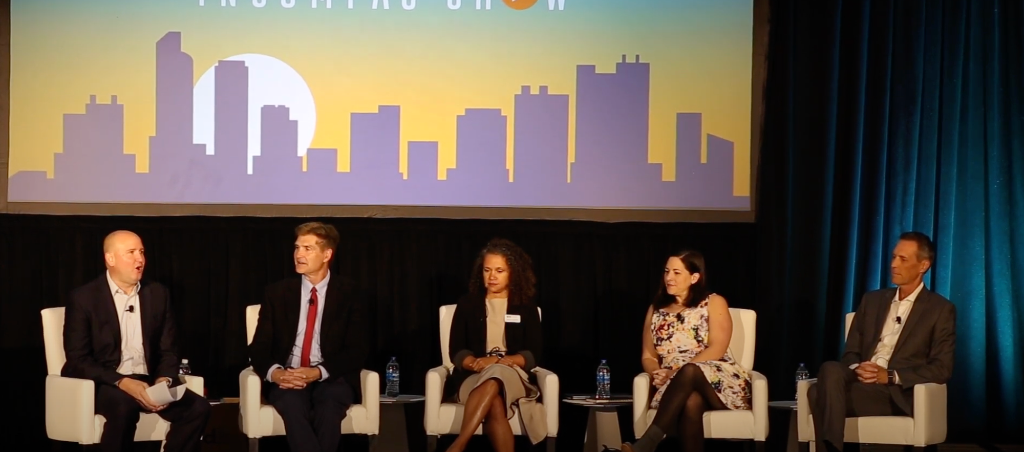State and Industry Leaders Offer BEAD Update
Panelists emphasized community, collaboration as essential to BEAD success

Panelists emphasized community, collaboration as essential to BEAD success

WASHINGTON, Oct. 23, 2024 - A group of state and industry broadband experts said Tuesday that partnerships between government, service providers and communities were crucial to the success of the Biden administration’s $42.45 billion Broadband Equity, Access, and Deployment program.
“It’s really important to [work with] people from within the community because they’re trusted people and they know their communities very well,” said Executive Director of the Colorado Broadband Office Brandy Reitter in a panel that included Chief Strategy Officer at the Wyoming-based service provider Visionary Broadband Brian Wagner.
Wagner noted the importance of collaboration with communities in the development of census block groups. He said that census block groups assigned arbitrarily could split communities, raising difficulties in the BEAD application process.
The other panelists, including Tarana’s Vice President of Government Affairs and Policy Carl Guardino and National Telecommunications and Information Administration Federal Program Officer Sarah Smith, also noted the importance of community engagement.
“People deserve to know that if we’re investing hard-earned tax dollars [by way of] federal and state funds, that it’s going to work,” said Guardino.
The experts were speaking at the 2024 INCOMPAS Show (Oct. 20-22) in Denver, Colo. The panel was moderated by INCOMPAS Executive Director of Public Policy Christopher Shipley.
Panel asserted that a ‘one size fits all’ approach to community engagement and broadistband implementation was unrealistic. Smith noted that the ability for states to engage with residents and potential subgrantees according to their specific needs was an important aspect of the BEAD program’s successful implementation.

The ambitious undertaking is supported by a $20 million grant awarded under the 2021 Tribal Broadband Connectivity Program.

Satellite companies want easier access, while carriers say that could upend licenses they purchased.

The agency tapped Tricia J. Paoletta and Matthew Plaster as senior advisors

The fire chiefs voiced strong support in May 2025 for NextNav’s new technology, before shifting gears just last month.
Member discussion